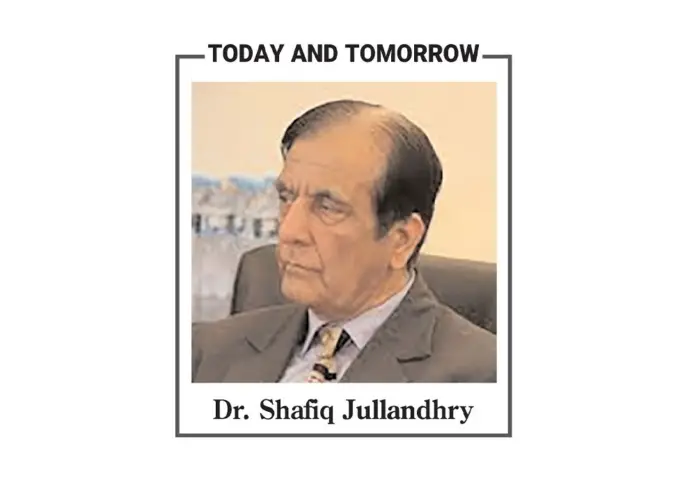Taking democracy lightly, it looks like a drama – every act shows strange, but delightful events. If one becomes serious, starts believing leaders’ promises, and allows himself to be emotional about the charmed personality of a political leader then displeasures and frustrations start surrounding him in every nook and corner.
Pay heed to your national responsibilities, keep an eye on the characters of your constituency’s political figures, and try to search out a person of caliber for casting your vote in the next elections in their favor. That is all which you can do as a patriot. Besides it, there is only so much ‘entertainment’ in lying, blaming, point scoring, street shows, public gatherings, money investment in elections, and a minimum of a hundred times more earning out of their election investments.
Any sane person will undoubtedly hate how our political leaders create an atmosphere of hooliganism, non-seriousness, and hatred during their election campaigns. That type of polluted atmosphere during elections and other political activities is a need for messy people. They cannot win public opinion in their favor without damaging the country’s neat, clean, and stable environment. Now, Imran Khan and his Pakistan Tehreek-e-Insaf are no more in power. The administration has started ‘correcting’ things quickly according to the liking of the new rulers. Whereas, the new rulers show impatience in grabbing more and more out of their power, the previous ruling party and its workers dislike the new government’s action. This behavior is the common psyche of the people of the ‘third world.’
We can eliminate it by bringing balance and true Islamic faith into our behaviors. For this purpose, ordinary people must critically look at their leaders’ actions.
Let us see, what were the bad aspects of Imran Khan’s opposition and he himself? Imran Khan’s opposition: (1) There are severe cases against them for plundering national wealth pending in the courts. Their utmost effort was not to get them decided during Imran Khan’s regime. (2) There are hundreds of people who have witnessed them getting bribes and commissions and ‘political’ donations [under threat]. Still, not even one of them can dare to confess it in the courts because they were themselves involved with them in most cases.(3), Our political system has become more of a system of dynasties rather than a system of democracy. Some families consider this country a place for the plunder of their families. Long tenures have given them ample opportunities to grab trillions of rupees and administrative strength by numberless appointments without merit in almost all government and semi-government organizations. (4) In the case of government services, these rulers consider only loyalty to their families and forget about national interests. (5) Opposition leaders and patrons didn’t heed the ‘foreign threat’ and a ‘letter.’
Imran Khan and his party: (1), Imran Khan failed to gather experienced loyal people from within his party. In elections, he preferred electables rather than his old and ideological party workers. (2), His party remained busy responding to the opponent’s severe criticism, especially regarding rising prices. It failed to make it clear to the ordinary person that they have done so much to correct wrongdoings of the past governments and are successful in stabilizing the economy and sustainable development on sound footing. (3) Imran Khan’s coalition government faced problems from its coalition partners, who always demanded more treasury positions in the government and kept their eyes on the Punjab chief minister’s seat. (4) Imran’s party was always given music and songs to sing about their leader only. Even the majority of his party didn’t like so much the praise of one man. (5) Imran couldn’t present his party as a model party of clean people. (6) Deputy commissioners continuously issued rate lists of vegetables, fruits, and other daily use items, but price and stock control authorities failed to control black marketing. The party’s lawmakers didn’t bother to contact the traders’ associations and solve this main problem with their cooperation. (7), At many levels of his party, workers and members felt ignored by the attention of Imran Khan.







